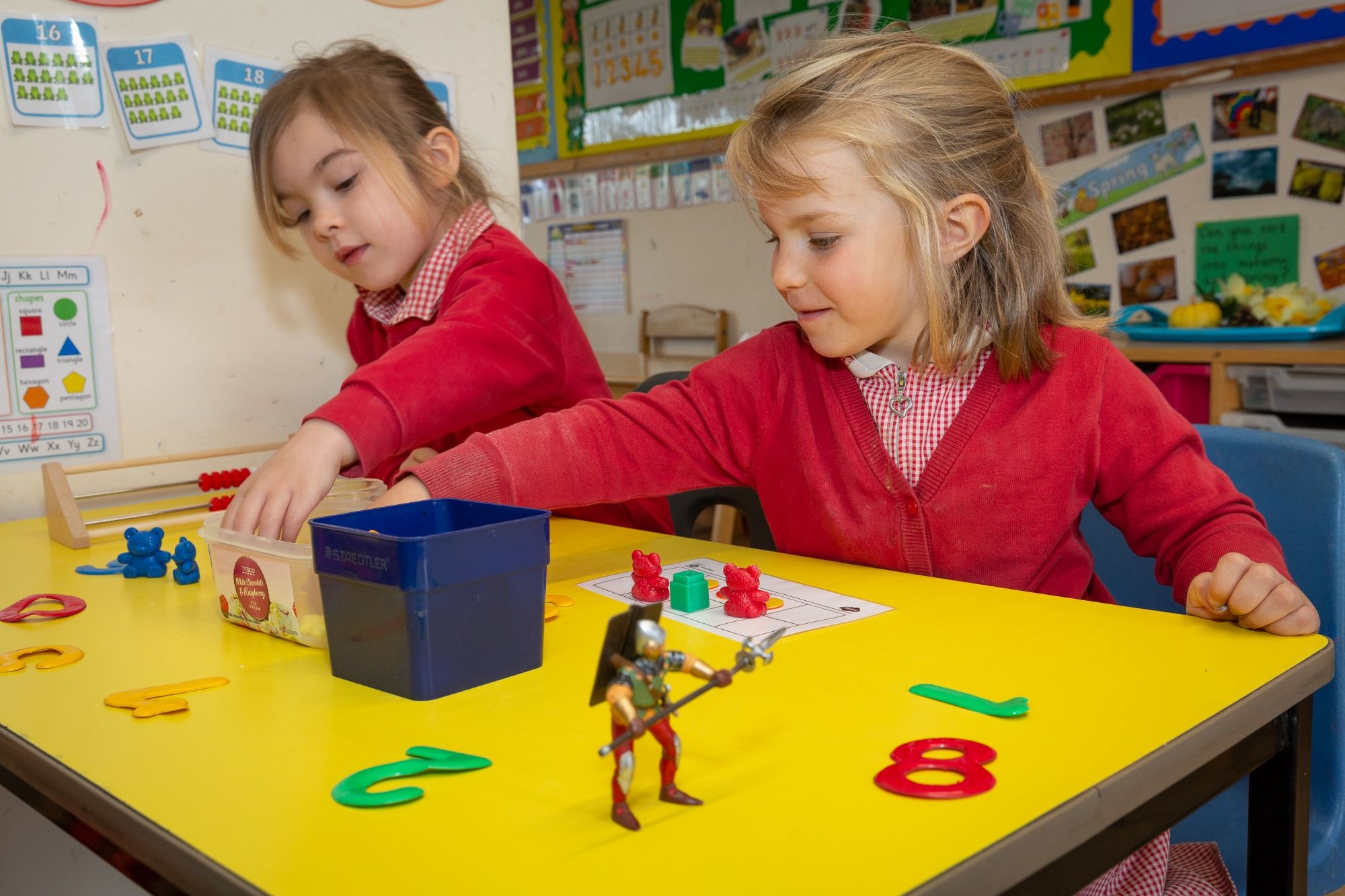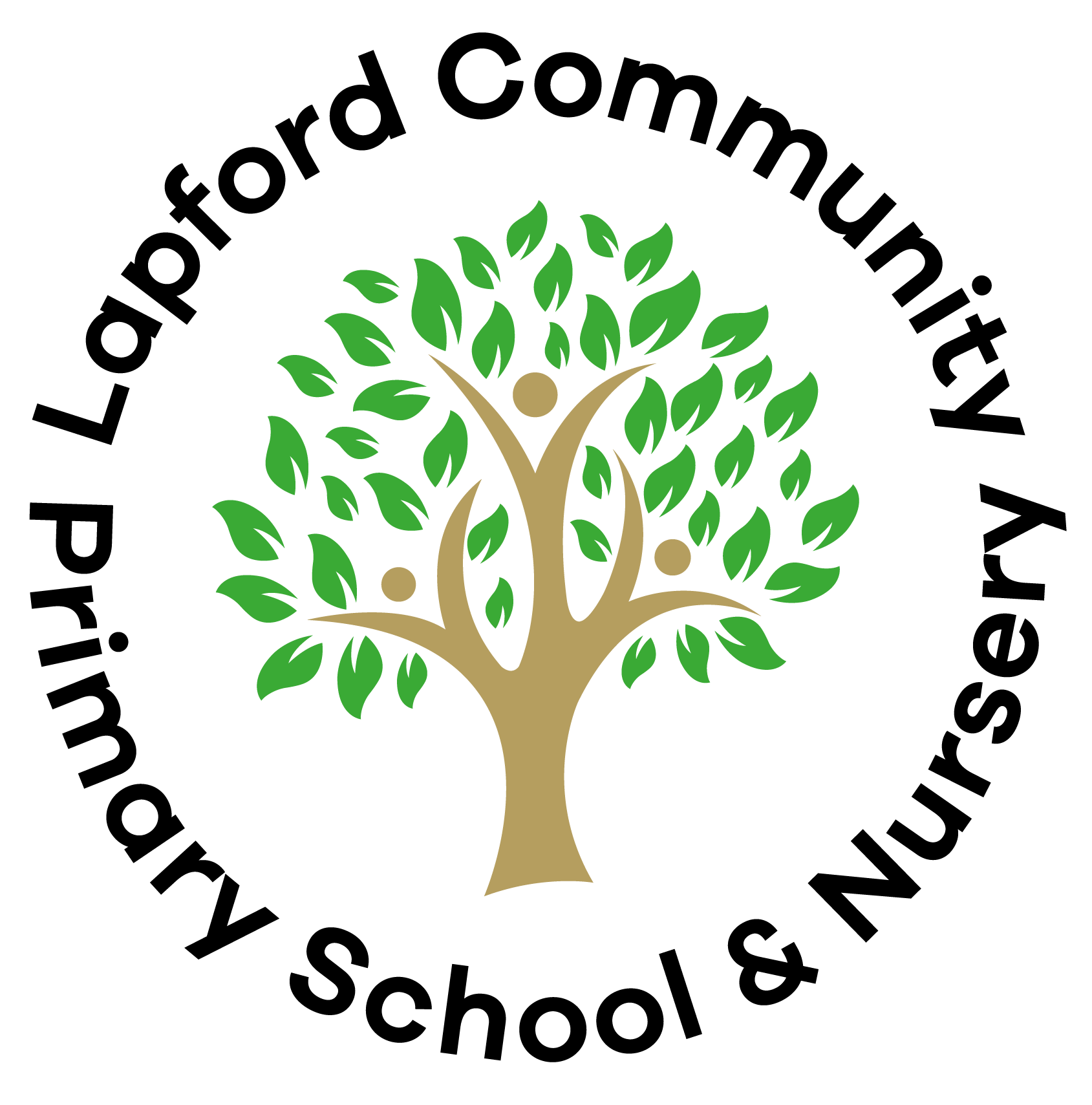Early Years
In our Primary School Foundation Unit, we provide education to a mixed age class of children from ages 2-5 years, led by a qualified primary school teacher who is supported by a team of experienced early years practitioners. We also run a “Stay and Play” session for families with children aged 0-2, where babies and toddlers access the provision alongside our Nursery children. At these sessions, staff are able to offer support and advice to parents of the youngest children.
INTENT
At Lapford Community Primary school, our Early Years Foundation Stage curriculum is carefully designed to provide a high quality foundation for our youngest children, taking into account our local context and our knowledge of our community. Our curriculum has been organised to ensure that children receive a range of high quality learning experiences which support their development across the prime areas during this crucial time in their educational journey. We believe in our children, and we intend to provide the strongest start possible for them with a particular focus on developing characteristics of effective learning.
We intend:
- To develop warm, positive relationships with all children in our setting, valuing each unique child and believing every child can achieve well.
- To work in partnership with parents and carers to encourage children and their families to value their learning, and to support each child to reach their full potential.
- To provide a well organised curriculum that clearly states what we want our children to learn and how this will be achieved throughout their time in the EYFS.
- To focus on the development of early language, communication and social skills to support children to become happy, independent individuals who can express their ideas and feelings clearly.
- To ensure every child learns to read, using a structured phonics programme from Nursery and offering targeted support at the earliest interval to those who need it.
- To instil in each child our trust values of compassion, ambition and teamwork.
- To ignite the curiosity of our children and their enthusiasm for learning through a range of creative and carefully planned opportunities including enrichment activities.
- To provide a well-structured learning environment where children have daily access to opportunities to learn across the seven areas of learning.
- To identify any special educational needs children have swiftly and to provide targeted support for these children, including working in partnership with outside agencies.
- To make links to the local community, to help our children feel a sense of belonging and pride in their local area.
- To prepare children to achieve a Good Level of Development (GLD) and the Early Learning goals at the end of the Foundation Stage and ensure children make at least good progress from their starting points.
- To prepare all children for their transition to Key Stage One and beyond.
IMPLEMENTATION
At Lapford Community Primary School, we follow the Early Years Statutory Framework for the Early Years Foundation Stage. This framework specifies the requirement for learning and development in the Early Years and provides prime and specific areas of learning we must cover in our curriculum.
We have designed an Early Years curriculum that is engaging, relevant and comprehensive to ensure that our children are fully immersed in their learning and make good progress within the prime and core areas of learning. We have taken into account our local context when designing our curriculum, to ensure that it is both relevant to our children and families but also creates opportunities for our children to develop their knowledge and understanding of the wider world, including other cultures and the celebration of difference.
Our curriculum clearly sets out what we want every child to learn during their time in our PSFU, and is ambitious and wide reaching in its content in order to prepare children for their learning in KS1 and beyond. We place language and communication at the centre of our approach to teaching and learning. We believe that early language skills are central to the development of effective learners, and through a range of approaches including a language rich environment, storytelling opportunities and explicit teaching and modelling of vocabulary and language we develop children’s voice and communication skills.
Learning in our EYFS classroom is structured in three ways:
- Play based learning, where children access the continuous provision independently, supported by sensitive and high quality interactions with adults to move their learning on.
- Guided play, where children take part in small group or one-to-one play based activities with adults where adults have specific learning intentions in mind and support children to achieve these.
- Explicit teaching, where children work in a larger group for short periods and receive direct instruction from adults. In these sessions, concepts, vocabulary and skills are introduced by the adult which children then take into their play.
In each unit of learning, a memorable moment is planned to fully engage the children and a big question is introduced, which children work towards answering during the unit. We encourage children to make links in their learning in order to make concepts and knowledge more relevant. We encourage retrieval of knowledge through daily repetition of vocabulary and key facts which are built into our classroom routines.
We ensure that every child is given rigorous opportunity to develop their reading skills. We use a well structured phonics programme from the age of three onwards, with all children aged 3-5 receiving daily phonics lessons and opportunities to practise their skills within the provision. Children who have difficulties learning to read are identified rapidly and given targeted support to ensure they develop the skills they need to read independently. Children read to adults regularly, and parents are given a wide range of information regarding phonics and early reading in order to support home learning.
Children aged 3-5 receive regular Maths and English sessions with an adult, where key skills are taught explicitly. Children then practise these skills in both small adult led groups, and within their play in the provision.
Our continuous provision is designed to cover the seven areas of learning, and is enhanced weekly to ensure good links are made to currently taught content. Continuous provision offers children the chance to build their skills as independent learners, to develop their social skills through play activities including role play, and to make choices about their own learning. Through child-initiated learning in the provision, children develop characteristics of effective learners such as innovation, enquiry, analysis and problem solving. The role of the adult in our provision is to provide high quality interactions to support children as they explore the environment, guiding children to adapt their approaches and modelling the processes learners go through until these become natural for the children to adopt independently.
All children have key next steps in their learning identified, which are reviewed discussed weekly by staff in order to ensure that good progress is made. Staff feed back on their key children, and reflect on the learning seen, the learning styles demonstrated by children and areas of need. Regular observations are made of the children as they learn, both independently and in adult guided sessions, and these are collated in each child’s learning journey. Each term, we assess children’s progress and development using both Development Matters, Birth to Five and practitioners own knowledge of child development to decide whether each child is “on track” for their given stage of education. Where children are not on track, interventions are planned to support them to make progress in small steps. These interventions can be discrete adult led sessions, adult interactions planned within the provision during play, and adaptations to planning to ensure that the needs of all learners are met.
Children with identified special educational needs are identified and supported in line with the SEND code of practice. We work with our SEND Lead to ensure that referrals to outside agencies are made in a timely manner, and that support is sought to enable staff to use the best strategies to ensure good progress for their children.
Our setting offers daily access to both indoor and outdoor learning. We know that children in EYFS learn best by playing and exploring, and that physical activity is vital. Our outdoor area is used all year round and in all weather conditions, and children have a range of equipment and space to develop their physical development skills and to allow them to explore the natural world around them. This includes weekly access to our forest area.
We provide enrichment activities regularly to children, including trips offsite, visits from a range of community members including vets, nurses and the hedgehog rescue, and extra-curricular activities such as clubs and sports activities.
To support families, we provide regular opportunities for parents and carers to come into school and work with their child, share their work and celebrate successes. We run workshops in phonics and early reading, and keep parents informed regarding what their children are learning using both topic webs, our Tapestry online learning journal and Class Dojo. Home learning is encouraged, with a focus on reading and story telling. Children take home both phonics reading books and self-chosen library books to share with their families.
We believe our curriculum is ambitious and prepares children for the learning they will undertake in Key Stage One. To support the children’s practical transition to Year One, children in EYFS are gradually introduced to whole school initiatives such as the golden rules, the school behaviour system, celebration assemblies and some outdoor play sessions with the older children. They are taught to embrace and demonstrate our Trust values of Compassion, Ambition and Teamwork through our daily routines and our PSED curriculum. They eat lunch in the hall with the whole school and receive some Physical Education lessons with our specialist coaches.
IMPACT
We strive to ensure that every child’s progress across the EYFS curriculum is good. We monitor children’s starting points, next steps and progress carefully, giving carefully targeted support to children who need it through a range of interventions. Our curriculum design and assessment procedures support staff to use their regular observations of children to make formative assessments which inform future planning and ensure that all children build on their current knowledge and skills at a good pace. Interventions are updated regularly and assessed for impact to ensure that no child is able to ‘coast’. Termly summative assessment compares children’s attainment to the age - related expectations in Development Matters and Birth to Five documents. Staff carry out this assessment as a team, chiefly using their knowledge of each child but also looking at evidence collected from regular observations, mark-making tasks and end of unit assessments (phonics and maths). This approach ensures rates of progress are at least good for all children, including vulnerable groups such as those with SEND, disadvantaged children and summer born children. The impact of our curriculum is assessed by measuring our outcomes against all schools nationally.
By the end of the EYFS, the majority of our children achieve a Good Level of Development, including many children who begin their time at school with starting points below those expected for their age. Our levels of GLD are in line with, and often above, national averages. Our results in the Communication and Language Early Learning Goals and the Reading Early Learning Goal are particularly strong, providing children with a good foundation for the rest of their educational journey.

